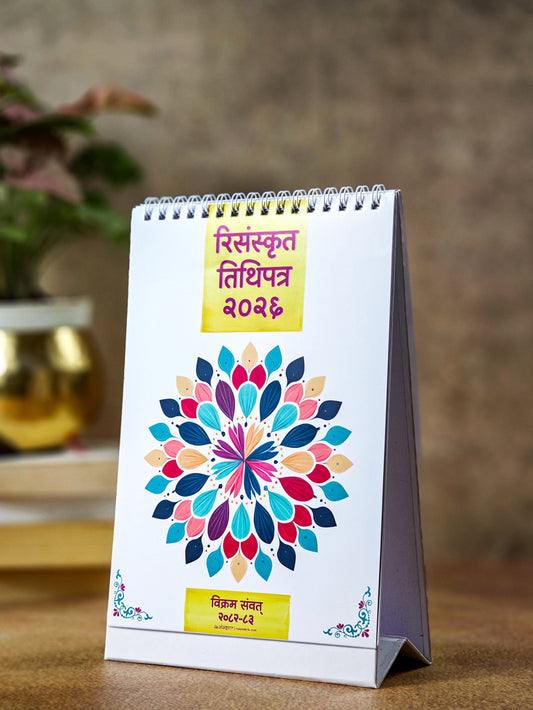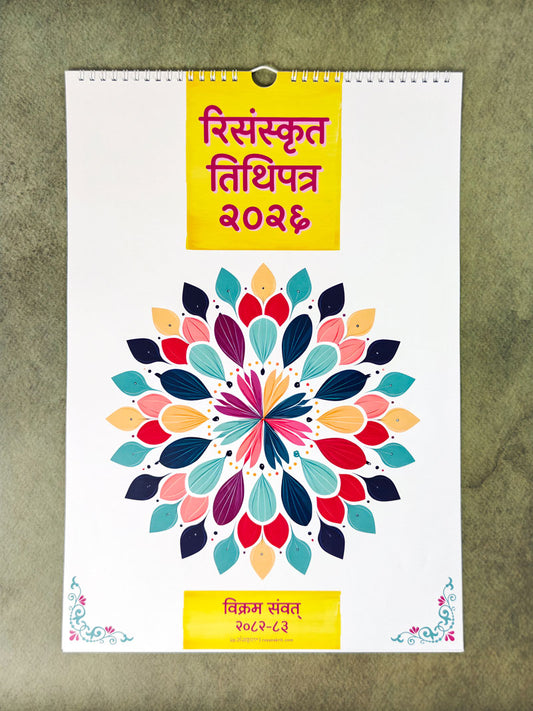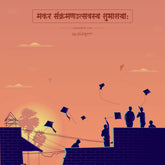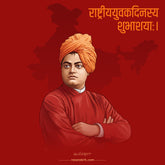Aditya Hrudayam Stotram Meaning Explained

Introduction
In our culture it is often found that the forces of nature themselves as deities are worshipped like the wind, the water, the earth, the fire and so on. One among these deities is Surya, the presiding deity of our Sun, also known as Aditya (due to his being the son of Aditi), who is worshipped as the sustainer of life on earth.
Our culture has given prime importance to worship of the Sun through the practice of Sandhyavandana, the ritual to be performed by all Dvijas (wearers of the sacred thread, lit. twice-born) everyday during sunrise, noon and sunset, where our prayers are offered to the Lord Surya through the chanting of the Gayatri Mantra, the sacred hymn to the (brilliance of the) Sun God, revealed in the Rig Veda (Rig Veda 3.62.10).
Another important hymn to the Sun-God is the Aditya Hrudayam, the subject of this article. This is a Stotram, or a sacred hymn, dedicated to Lord Aditya.
The story
During the final between Rama and Ravana in Ramayana. Rama has used all kinds of weapons and missiles against Ravana, but in vain. The overlord of the Rakshasas seems invincible. Rama, currently a normal human being (and not the all-powerful Lord Vishnu), is tormented by fatigue, both mentally and physically. He glances at his enemy, who is ready for battle, and worry crosses his brow.
It is in this gripping scenario that the whole of our hymn is recited.
At this juncture, as the gods look on from the sky, the sage Agastya appears in front of Rama and, with the aim of rejuvenating Rama and hastening the outcome of the battle, teaches this prayer to Lord Surya, and disappears soon afterward. Rama receives the prayer from Agastya, and becomes energized upon reciting it. He lifts his bow and prepares for the final confrontation.
Thus, the poet of the Ramayana, with his impeccable style, ends the chapter where the Aditya Hridayam is contained, to proceed afresh with the deciding battle of the tale.
The Stotram and its structure
The Aditya Hrudayam is so named because, according to the great commentator of the Ramayana, Sri Govindaraja, it is ‘The Prayer that pleases the Heart of Lord Aditya’ – Aditya Manah-Prasadakam Ityarthah.
As mentioned earlier, this is a work of 31 slokas, out of which the first 30 are set in the popular 32-syllabled meter, the Anushtup Chandas. The text has a unique flow, with a distinctive structure, where the slokas are structured as follows:
- The Introduction to the scenario – verses 1-2
- The listing of the benefits of recitation of the hymn – verses 3-5
- The various attributes and activities of Lord Aditya – verses 6-15
- The Aditya Hrudayam – The core of the whole prayer – verses 16-21
- The glories of Aditya – verses 22-24
- The Phalashruti – the benefits of recitation of the prayer – verses 25-27
- The Conclusion – verses 28-32
What makes this structure unique is the presence of the glories of the deity and the Phalasruti both before as well as after the core portion of the text – a characteristic that is seldom seen in any other hymn.
Benefits of recitation
As pointed out earlier, the Aditya Hrudayam lists out its benefits twice – once before and once after the prayer. Agastya enlightens Rama of the benefits of the Stotram at the outset, by saying, “This Aditya Hrudayam has the potency to vanquish all enemies, bestow victory and bless its chanter with unending auspiciousness, sound health (implying curing of diseases) and eradication of all miseries and sins.” – Shloks 4-5.
After reciting the Hrudayam, Agastya promises Rama, “During times of danger, in places of fear or uncertainty, whoever recites this hymn shall not fall into misery. Upon chanting this hymn thrice unto Lord Aditya with complete devotion, you shall attain victory. You shall defeat Ravana the very next instant, Oh Rama!” – Verses 25-27.
This implies the efficacy of chanting of this hymn and the confidence it instills in the mind of the devotee, something which manifests almost instantaneously in Rama.
The great sage of Kanchi, Sri Chandrasekharendra Saraswati (1894-1994), the 68th Pontiff of the Kanchi Kamakoti Mutt, prescribed Aditya Hridayam as a text with great Mantra Shakti. Regular recitation of it is sure to grant sound health, longevity, dispelling of miseries and peace of mind, as indicated by Rishi Agastya in the Phalashruti.
The correct pronunciation by Dr.R. Thiagarajan
Scientific gleamings from the Stotram
From the glories of Surya described in the Stotram, we can understand how our culture worships the Sun as the prime cause of sustenance of life on earth.
We understand how all natural phenomena are ascribed to be an act of Lord Aditya. This is seen in the initial part of the hymn where Agastya identifies Lord Surya with majority of the other devas, with the opposite forces being paired together – such as Yama (Death) and Soma (Rejuvenation), Pitrs (the dead) and Vasus (the forces of nature), Vayu (wind) and Vahni (fire) and so on. The seasons are said to be caused by him, as are cold and heat, day and night, rain and shine, etc.
We also get a hint that the ancients too knew about rotation and revolution of the earth around the Sun, the tilt of the earth’s axis towards and away from the Sun (which causes the change in seasons), the rain cycle and the evolution of a star system (and its eventual dissolution in the same star). A detailed reading of the Stotram by the reader may reveal even more insightful information.
Other glories of Lord Surya
This stotram contains a beautiful praise of Lord Surya, describing him as the cause of the creation, sustenance and eventual dissolution of this earth. Rishi Agastya devotes 13 slokas out of 31 to the praise of Surya (out of which 3 slokas occur after the recitation of the actual hymn).
Lord Surya is primarily described as the Overlord of the World, who nourishes and protects the world through his various duties. He is described as the Glorious One with infinite rays, who is worshipped by all, including the eternal enemies, the devas (gods) and the asuras (the enemies of the gods). He is the embodiment of all divinities (Sarva Devatmakah) such as Brahma, Vishnu, Shiva, Skanda, the eight guardians of the world, and so on. Such praise of Surya is a reflection of the Vedic maxim:
सूर्य आत्मा जगतस्तस्थुषश्च॥
Transliteration:
“sūrya
ātmā jagatastasthuṣaśca॥”
English
Translation:
The sun is the soul of all that
is dynamic and static (Atharva Veda 13.2.35)
He is the Lord of the Skies, the
creator of the Seasons, who dispels darkness and causes cold and
heat one after the other (referring to the change in seasons
being due to the shift of the earth towards and away from the
Sun). He is the Lord praised by the Rig, Yajuh, and Sama Vedas.
He causes heavy rains and is the friend of the waters (a poetic way of describing the rain cycle), and is the source of all that is in this world. He has the skies as his pathway and he is always on the move (referring to the revolution of the Sun around the Galactic center).
Lord Surya destroys all that is created, and recreates all that is destroyed (a reference to how everything in a star system arises from and dissolves into the same nebula). He provides heat and rains successively and is the form of all activities in this world and their fruits.
A similar praise can be found in the Bhagavata Purana, 12.11.30:
एक एव हि लोकानाम् सूर्य आत्मादिकृद्
हरिः।
सर्व वेद क्रिया मूलम्
ऋषिभिर्बहुधोदितः॥
Transliteration:
eka
eva hi lokānām sūrya ātmādikṛd hariḥ।
sarva veda kriyā
mūlam ṛṣibhirbahudhoditaḥ॥
English
Translation:
“The Sun God, a manifestation of
Lord Hari, is the one Soul of everyone in this world. He is
the source of all Vedic activities, and is praised variously
by several Rishis (like, here, Rishi Agastya)”.
Stotram in Sanskrit with translation

ततो युद्धपरिश्रान्तं समरे
चिन्तया स्थितम्।
रावणं
चाग्रतो दृष्ट्वा युद्धाय
समुपस्थितम्॥१॥
दैवतैश्च
समागम्य द्रष्टुमभ्यागतो
रणम्।
उपगम्याब्रवीद्
राममगस्त्यो
भगवांस्तदा॥२॥
Transliteration:
tato
yuddhapariśrāntaṃ samare cintayā
sthitam।
rāvaṇaṃ cāgrato dṛṣṭvā
yuddhāya samupasthitam॥1॥
daivataiśca samāgamya
draṣṭumabhyāgato raṇam।
upagamyābravīd rāmamagastyo
bhagavāṃstadā॥2॥
English
translation:
Approaching
Rāma standing absorbed in deep
thought in the battle-field,
exhausted by the fight, and facing
Ravana who was duly prepared for the
war,
the glorious sage Agastya,
who had come in the company of the
gods,
to witness the battle,
then spoke as follows
-
Hindi
translation:
इधर
श्रीरामचन्द्रजी युद्ध से थककर चिंता
करते हुए युद्धभूमि में खड़े थे।
इतने में युद्ध के लिए उनके सामने
उपस्थित हो गया।
यह देख भगवान्
अगस्त्य मुनि, जो देवताओं के साथ
युद्ध देखने के लिए आए थे, श्रीराम के
पास जाकर बोले -
राम राम महाबाहो शृणु गुह्यं सनातनम्।
येन
सर्वानरीन् वत्स समरे विजयिष्यसे॥३॥
Transliteration:
rāma
rāma mahābāho śṛṇu guhyaṃ sanātanam।
yena sarvānarīn
vatsa samare vijayiṣyase॥3॥
English
translation:
"O Rāma, the mighty
armed! Hear the following eternal secret,
by which you
can conquer all the enemies in battle, my
child!"
Hindi
translation:
“सब के हृदय में रमण
करनेवाले राम! यह सनातन गोपनीय स्तोत्र सुनो। वत्स!
इसके
जप से तुम युद्ध में अपने समस्त शत्रुओं पर विजय पा जाओगे।

Bring Sanskrit home!
Buy ReSanskrit Merchandise...
See More!
आदित्यहृदयं पुण्यं सर्वशत्रुविनाशनम्।
जयावहं जपं
नित्यमक्षयं परमं शिवम्॥४॥
सर्वमङ्गलमाङ्गल्यं
सर्वपापप्रणाशनम्।
चिन्ताशोकप्रशमनमायुर्वर्धनमुत्तमम्॥५॥
Transliteration:
ādityahṛdayaṃ
puṇyaṃ sarvaśatruvināśanam।
jayāvahaṃ japaṃ
nityamakṣayaṃ paramaṃ śivam॥4॥
sarvamaṅgalamāṅgalyaṃ
sarvapāpapraṇāśanam।
cintāśokapraśamanamāyurvardhanamuttamam॥5॥
English
translation:
“This supreme prayer,
Ādityahrudayam, is the best amongst auspicious verses,
it will destroy all sins, dispel all doubts, allay all worry
and sorrow,
anxiety and anguish, and increase the
longevity of life.
It gives complete
prosperity.
Hindi
translation:
“इस गोपनीय स्तोत्र का
नाम है 'आदित्यहृदय'। यह परम पवित्र और संपूर्ण शत्रुओं का नाश
करनेवाला है।
इसके जप से सा विजय की प्राप्ति होती है। यह
नित्य अक्षय और परम कल्याणमय स्तोत्र है।
संपूर्ण मंगलों
का भी मंगल है। इससे सब पापों का नाश हो जाता है।
यह चिंता
और शोक को मिटाने तथा आयु को बढ़ानेवाला उत्तम साधन है।
रश्मिमन्तं समुद्यन्तं देवासुरनमस्कृतम्।
पूजयस्व
विवस्वन्तं भास्करं भुवनेश्वरम्॥६॥
Transliteration:
raśmimantaṃ
samudyantaṃ devāsuranamaskṛtam।
pūjayasva vivasvantaṃ
bhāskaraṃ bhuvaneśvaram॥6॥
English
translation:
“Worship the sun-god,
the ruler of the worlds and lord of the universe,
who is
crowned with effulgent rays, who appears at the horizon and
brings light,
who is greeted by the gods and the demons
alike.
Hindi
translation:
“भगवान् सूर्य अपनी
अनंत किरणों से सुशोभित (रश्मिमान्) है।
ये नित्य उदय
होनेवाला (समुद्यन्), देवता और असुरों से नमस्कृत, विवस्वान्
नाम से प्रसिद्ध,
प्रभा का विस्तार करनेवाले (भास्कर) और
संसार के स्वामी (भुवनेश्वर) हैं। तुम इनका इन नाम मन्त्रों के
द्वारा पूजन करो।
सर्वदेवात्मको ह्येष तेजस्वी रश्मिभावनः।
एष
देवासुरगणाँल्लोकान् पाति गभस्तिभिः॥७॥
Transliteration:
sarvadevātmako
hyeṣa tejasvī raśmibhāvanaḥ।
eṣa devāsuragaṇā~llokān
pāti gabhastibhiḥ॥7॥
English
translation:
“Indeed, He is the
very embodiment of all Gods. He is self-luminous and a
reflector of all the rays.
He nourishes and energises
the inhabitants of all the worlds as well as the host of
Gods and demons by his rays.
Hindi
translation:
“संपूर्ण देवता इन्हीं
के स्वरूप है। ये तेज की राशि तथा अपनी किरणों से जगत को सत्ता
एवं स्फूर्ति प्रदान करनेवाले हैं।
ये ही अपनी रश्मियों का
प्रसार करके देवता और असुरों सहित संपूर्ण लोगों का पालन करते
हैं।
एष ब्रह्मा च विष्णुश्च शिवः स्कन्दः प्रजापतिः।
महेन्द्रो धनदः कालो यमः सोमो ह्यपां पतिः॥८॥
पितरो
वसवः साध्या अश्विनौ मरुतो मनुः।
वायुर्वह्निः प्रजाः
प्राण ऋतुकर्ता प्रभाकरः॥९॥
Transliteration:
eṣa
brahmā ca viṣṇuśca śivaḥ skandaḥ prajāpatiḥ।
mahendro
dhanadaḥ kālo yamaḥ somo hyapāṃ patiḥ॥8॥
pitaro vasavaḥ
sādhyā aśvinau maruto manuḥ।
vāyurvahniḥ prajāḥ prāṇa
ṛtukartā prabhākaraḥ॥9॥
English
translation:
“Indeed, he is Brahma
(the creator), Viṣṇu (the protector), Śiva (the god of
destruction), Skanda (son of Śiva),
Prajāpati (the ten
lords of beings), Indra (the ruler of gods), Kubera (the
bestower of riches), Kāla (time),
Yama (god of
retribution), Soma (the moon god), Varuṇa (ruler of waters),
the Pitṛs (ancestors), the eight Vasus,
the twelve
Sādhyas, the two Aśvinas (physicians of god), the forty nine
Maruts (wind gods),
Manu (progenitor of the human race),
Vāyu (the wind god), the fire god, The created beings, the
life breath (of all human beings), the maker of the seasons
and the giver of light.
Hindi
translation:
“ये ही ब्रह्मा,
विष्णु, शिव, स्कन्द, प्रजापति, इंद्र, कुबेर, काल,
यम,
चन्द्रमा, वरुण, पितर, वसु, साध्य,
अश्विनीकुमार, मरुद्गण,
मनु, वायु, अग्नि, प्रजा, प्राण, ऋतुओं को प्रकट करनेवाले तथा
प्रभा के पुंज हैं।
आदित्यः सविता सूर्यः खगः पूषा गभस्तिमान्।
सुवर्णसदृशो भानुर्हिरण्यरेता दिवाकरः॥१०॥
हरिदश्वः
सहस्रार्चिः सप्तसप्तिर्मरीचिमान्।
तिमिरोन्मथनः
शम्भुस्त्वष्टा मार्ताण्डकोंऽशुमान्॥११॥
हिरण्यगर्भः
शिशिरस्तपनो भास्करो रविः।
अग्निगर्भोऽदितेः पुत्रः
शङ्खः शिशिरनाशनः॥१२॥
व्योमनाथस्तमोभेदी
ऋग्यजुःसामपारगः।
घनवृष्टिरपां मित्रो
विन्ध्यवीथीप्लवङ्गमः॥१३॥
आतपी मण्डली मृत्युः पिङ्गलः
सर्वतापनः।
कविर्विश्वो महातेजाः रक्तः
सर्वभवोद्भवः॥१४॥
नक्षत्रग्रहताराणामधिपो
विश्वभावनः।
तेजसामपि तेजस्वी द्वादशात्मन् नमोऽस्तु
ते॥१५॥
Transliteration:
ādityaḥ
savitā sūryaḥ khagaḥ pūṣā gabhastimān।
suvarṇasadṛśo
bhānurhiraṇyaretā divākaraḥ॥10॥
haridaśvaḥ sahasrārciḥ
saptasaptirmarīcimān।
timironmathanaḥ śambhustvaṣṭā
mārtāṇḍakoṃ'śumān॥11॥
hiraṇyagarbhaḥ śiśirastapano
bhāskaro raviḥ।
agnigarbho'diteḥ putraḥ śaṅkhaḥ
śiśiranāśanaḥ॥12॥
vyomanāthastamobhedī
ṛgyajuḥsāmapāragaḥ।
ghanavṛṣṭirapāṃ mitro
vindhyavīthīplavaṅgamaḥ॥13॥
ātapī maṇḍalī mṛtyuḥ
piṅgalaḥ sarvatāpanaḥ।
kavirviśvo mahātejāḥ raktaḥ
sarvabhavodbhavaḥ॥14॥
nakṣatragrahatārāṇāmadhipo
viśvabhāvanaḥ।
tejasāmapi tejasvī dvādaśātman namo'stu
te॥15॥
English
translation:
“His names are -
Āditya (an offspring of Aditi), Savitā (the progenitor of
all), Sūrya (the sun god), Pūṣā (the procator of people),
Gabhastimān (the nourisher with rain), the possessor of
golden rays that are brilliant having the golden seed,
Divākara (maker of the day); he has seven horses, Sahasrārci
(thousand rayed), Marīcimān (full of rays), Timironmadhana
(destroyer of darkness), Śambhu (giver of life), Mārtaṇḍa
(who is infuser of life in the cosmic egg); Hiraṇyagarbha
(who is a golden foetus), Ahaskara (who brings the day),
Ravi (eulogised by all), Agnigarbha (pregnant with fire),
the son of Aditi, Śiśiranāśana (the destroyer of frost);
Vyomanātha (the lord of the sky), Tamobhedī (disperser of
darkness), the master of Ṛgveda, Yajurveda and Sāmaveda,
Ghanavṛṣṭi (sender of great rainfall), Apāṃ mitra (the
friend of waters) and Vindhyavītīplavaṅgama (the one who
swiftly crosses the sky); Ātapī (he is the radiator of heat)
and Maṇḍalī (is adorned with a circle of rays), Mṛtyu (he is
death himself), Piṅgala (tawny in colour), Sarvatāpa (giver
of warmth), omniscient, endowed with extra ordinary
splendour, and Sarvabhavaodbhava (the one who is
affectionate); he is the controller of all the lunar bodies,
planets and stars, creator of all and resplendent among the
splendid, O god, Dwādaśātman (who appears in twelve forms),
hail to you!
Hindi
translation:
“इन्हीं के नाम -
आदित्य (अदितीपुत्र), सविता (जगत को उत्पन्न करनेवाले), सूर्य,
(सर्वव्यापक), खग (आकाश में विचरनेवाले), पृषा (पोषण
करनेवाले), गभस्तिमान (प्रकाशमान), सुवर्णसादृश, भानु
(प्रकाशक), हिरण्यरेता (ब्रह्मांड की उत्पत्ति के बीज), दिवाकर
(रात्रि का अंधकार दूर करके दिन का प्रकाश फैलानेवाले),
हरिदश्व (हरे रंग के घोड़े वाले), सहस्रार्चि (हजारों किरणों से
सुशोभित), सात घोड़ेवाले, मरीचिमान (किरणों से सुशोभित), अंधकार
का नाश करनेवाले, शम्भू (कल्याण के उद्गमस्थान), त्वष्टा
(भक्तों का दुःख दूर करनेवाले), मार्तन्डक (ब्रह्माण्ड को जीवन
प्रदान करनेवाले), अंशुमान (किरण धारण करने वाले), हिरण्यगर्भ
(ब्रह्मा), ठंडी का नाश करनेवाले, अहस्कर (दिनकर), रवि (सब के
स्तुतिपात्र), अग्नि को गर्भ में धारण करनेवाले, आकाश स्वामी,
अंधकार को नष्ट करनेवाले, ऋग्वेद, यजुर्वेद तथा सामवेद के
पारगामी, घनी वृष्टि देनेवाले, जालों को उत्पन्न करनेवाले,
किरणों को धारण करनेवाले, पिंगल (भूरे रंग वाले), सबको ताप
देनेवाले, सर्वस्वरूप, कवि, महातेजस्वी, लाल रंगवाले,
तेजस्वियों में भी अधिक तेजस्वी, तथा जो बारे स्वरूपों में
अभिव्यक्त है - आपको नमस्कार है।
नमः पूर्वाय गिरये पश्चिमायाद्रये नमः।
ज्योतिर्गणानां पतये दिनाधिपतये नमः॥१६॥
Transliteration:
namaḥ
pūrvāya giraye paścimāyādraye namaḥ।
jyotirgaṇānāṃ
pataye dinādhipataye namaḥ॥16॥
English
translation:
Salutations to the
Lord of eastern mountain (sunrise) Lord of western mountain
(sunset).
Salutations to the Lord of the stellar bodies
and to the Lord of day.
Hindi
translation:
पूर्वागीरी (उदयाचल)
तथा पश्चिमगिरि (अस्ताचल) तक आपको नमस्कार है।
ग्रहों और
तारों के स्वामी तथा दिन के अधिपति आपको प्रणाम है।
जयाय जयभद्राय हर्यश्वाय नमो नमः।
नमो नमः
सहस्रांशो आदित्याय नमो नमः॥१७॥
Transliteration:
jayāya
jayabhadrāya haryaśvāya namo namaḥ।
namo namaḥ
sahasrāṃśo ādityāya namo namaḥ॥17॥
English
translation:
Hail to you, the
bestower of victory, hail to you the joy born of victory!
Hail to you the lord of green horses, Hail to you Oh
thousand rayed one! Hail to you Oh son of Aditi!
Hindi
translation:
आप जयस्वरूप तथा विजय
और कल्याण के दाता हैं। आपके रथ में हरे घोड़े जुते हैं।
आपको बारम्बार नमस्कार है। सहस्रों किरणों से सुशोभित
भगवान् सूर्या आपको बारम्बार नमस्कार है। अदिति के पुत्र आपको
बारम्बार नमस्कार है।
नम उग्राय वीराय सारङ्गाय नमो नमः।
नमः
पद्मप्रबोधाय प्रचण्डाय नमो नमः॥१८॥
Transliteration:
nama
ugrāya vīrāya sāraṅgāya namo namaḥ।
namaḥ
padmaprabodhāya pracaṇḍāya namo namaḥ॥18॥
English
translation:
Salutations to you O
fierce one, salutations to the valiant one,
salutations
to the one with variegated colours, hail to you Oh furious
one!
Hindi
translation:
उग्र, वीर एवं सारंग
(शीघ्रगामी) सूर्यदेव को मेरा नमस्कार है।
कमलों को विकसित
करनेवाले प्रचंड तेजधारी प्रचण्ड को भी मेरा प्रणाम है।
ब्रह्मेशानाच्युतेशाय सूर्यायादित्यवर्चसे।
भास्वते
सर्वभक्षाय रौद्राय वपुषे नमः॥१९॥
Transliteration:
brahmeśānācyuteśāya
sūryāyādityavarcase।
bhāsvate sarvabhakṣāya raudrāya
vapuṣe namaḥ॥19॥
English
translation:
Salutations to the
Lord of Brahma, Śiva and Viṣṇu, salutations to Sūrya the sun
god,
who (by his power and effulgence) is both the
illuminator and devourer of all and is of a form that is
fierce like Rudra.
Hindi
translation:
आप भगवान ब्रह्मा, शिव
और विष्णु के भी स्वामी है। सूर आपकी संज्ञा है, यह सूर्यमंडल
आपका ही तेज है,
आप प्रकाश से परिपूर्ण हैं, सबको स्वाहा
कर देनेवाली अग्नि आपका ही स्वरुप है, आप रौद्ररूप धारण करने
वाले आपको मेरा नमस्कार है।
तमोघ्नाय हिमघ्नाय शत्रुघ्नायामितात्मने।
कृतघ्नघ्नाय देवाय ज्योतिषां पतये नमः॥२०॥
Transliteration:
tamoghnāya
himaghnāya śatrughnāyāmitātmane।
kṛtaghnaghnāya devāya
jyotiṣāṃ pataye namaḥ॥20॥
English
translation:
Salutations to the
dispeller of darkness, the destroyer of cold,
fog and
snow, the exterminator of foes; the one whose extent is
immeasurable.
Salutations also to the destroyer of the
ungrateful and to the Lord of all the stellar bodies,
who is the ruler of all the lights of the Universe.
Hindi
translation:
हे प्रभु, आप अज्ञान और
अन्धकार के नाशक है, आप जड़ता एवं शीत के निवारक तथा शत्रु का
नाश करनेवाले हैं।
आपका स्वरुप अप्रमेय है। आप कृतघ्नों का
नाश करनेवाले, संपूर्ण ज्योतियों के स्वामी और देवस्वरूप हैं,
आपको मेरा प्रणाम है।
तप्तचामीकराभाय हरये विश्वकर्मणे।
नमस्तमोऽभिनिघ्नाय रुचये लोकसाक्षिणे॥२१॥
Transliteration:
taptacāmīkarābhāya
haraye viśvakarmaṇe।
namastamo’bhinighnāya rucaye
lokasākṣiṇe॥21॥
English
translation:
Salutations to the
Lord shining like refined gold, destroying darkness, to the
architect of the universe,
who destroys the darkness (of
ignorance), and who is the cosmic witness. Salutations to
incarnate splendour, the cause of all activity and creation
in the world.
Hindi
translation:
प्रभु आप प्रभा तपाये
हुए सुवर्ण के समान है, आप हरि हैं, आप विश्वकर्मा हैं,
तम
के नाशक, प्रकाशस्वरूप एवं जगत के साक्षी हैं, आपको मेंरा
प्रणाम है।
नाशयत्येष वै भूतं तमेव सृजति प्रभुः।
पायत्येष
तपत्येष वर्षत्येष गभस्तिभिः॥२२॥
Transliteration:
nāśayatyeṣa
vai bhūtaṃ tameva sṛjati prabhuḥ।
pāyatyeṣa tapatyeṣa
varṣatyeṣa gabhastibhiḥ॥22॥
English
translation:
Salutations to the
Lord who creates heat by his brilliant rays.
He alone
creates, sustains and destroys all that has come into being.
Salutations to him who by his rays consumes the waters,
heats them up and sends them down as rain again.
Hindi
translation:
हे रघुनन्दन! ये भगवान्
सूर्य ही संपूर्ण भूतों का संहार, सृष्टि और पालन करते हैं।
ये अपनी किरणों से गर्मी पहुंचाते और वर्षा भी करते हैं ।

Bring Sanskrit home!
ReSanskrit merchandise starting at ₹
199.
See More!
एष सुप्तेषु जागर्ति भूतेषु परिनिष्ठितः।
एष
चैवाग्निहोत्रं च फलं चैवाग्निहोत्रिणाम्॥२३॥
Transliteration:
eṣa
supteṣu jāgarti bhūteṣu pariniṣṭhitaḥ।
eṣa
caivāgnihotraṃ ca phalaṃ caivāgnihotriṇām॥23॥
English
translation:
Salutations to the
Lord who abides in the heart of all beings keeping awake
when they are asleep.
Verily, he is the Agnihotra, the
sacrificial fire and the fruit gained by the worshipper of
the Agnihotra.
Hindi
translation:
ये सब भूतों में
अन्तर्यामी रूप से स्थित होकर उनके सो जाने पर भी जागते रहते
हैं।
ये ही अग्निहोत्र तथा अग्निहोत्री पुरुषों को
मिलनेवाले फल हैं।
देवाश्च क्रतवश्चैव क्रतूनां फलमेव च।
यानि
कृत्यानि लोकेषु सर्वेषु परमप्रभुः॥२४॥
Transliteration:
devāśca
kratavaścaiva kratūnāṃ phalameva ca।
yāni kṛtyāni lokeṣu
sarveṣu paramaprabhuḥ॥24॥
English
translation:
He comprises all the
gods, as well as the fruits of the sacrifices also.
He
is supremely competent, one of all activities which is found
in all the worlds.
Hindi
translation:
देवता, यज्ञ और यज्ञों
के फल भी ये ही हैं।
संपूर्ण लोगों में जितनी क्रियाएँ
होती हैं, उन सब का फल देने मैं ये ही पूर्ण समर्थ हैं।
एनमापत्सु कृच्छ्रेषु कान्तारेषु भयेषु च।
कीर्तयन्
पुरुषः कश्चिन्नावसीदति राघव॥२५॥
Transliteration:
enamāpatsu
kṛcchreṣu kāntāreṣu bhayeṣu ca।
kīrtayan puruṣaḥ
kaścinnāvasīdati rāghava॥25॥
English
translation:
Listen, Oh Rāghava,
any person, singing the glories of Surya in great
difficulties,
during affliction, while lost in the
wilderness, and when beset with fear, will not come to
grief.
Hindi
translation:
हे राघव! विपत्ति में,
कष्ट में, दुर्गम मार्ग में तथा और किसी भय के अवसर
पर जो
कोई पुरुष इन सूर्यदेव का कीर्तन करता है, उसे दुःख नहीं भोगना
पड़ता।
पूजयस्वैनमेकाग्रे देवदेवं जगत्पतिम्।
एतत्
त्रिगुणितं जप्त्वा युद्धेषु विजयिष्यति॥२६॥
Transliteration:
pūjayasvainamekāgre
devadevaṃ jagatpatim।
etat triguṇitaṃ japtvā yuddheṣu
vijayiṣyati॥26॥
English
translation:
If you worship this
lord of the universe, the God of all Gods,
with
concentrated mind and devotion by reciting this hymn
(ādityahṛdayam) thrice, you will emerge victorious in the
battle.
Hindi
translation:
इसलिये तुम एकाग्रचित्त
होकर इन देवाधिदेव जगदीश्वर कि पूजा करो।
इसका (आदित्यहृदय
स्तोत्र का) तीन बार जप करने से तुम युद्ध में विजय पाओगे।
अस्मिन् क्षणे महाबाहो रावणं त्वं जहिष्यसि।
एवमुक्त्वा ततोऽगस्त्यो जगाम च यथागतम्॥२७॥
Transliteration:
asmin
kṣaṇe mahābāho rāvaṇaṃ tvaṃ jahiṣyasi।
evamuktvā
tato’gastyo jagāma ca yathāgatam॥27॥
English
translation:
“O mighty-armed one,
you shall triumph over Rāvaṇa this very moment.”
Saying
so, sage Agastya took leave and returned to his original
place.
Hindi
translation:
"महाबाहो! तुम इसी समय
रावण को यूद्ध में वध कर सकोगे।"
यह कहकर अगस्त्य ऋषि वापस
चले गए।
एतच्छ्रुत्वा महातेजा नष्टशोकोऽभवत् तदा।
धारयामास
सुप्रीतो राघवः प्रयतात्मवान्॥२८॥
आदित्यं प्रेक्ष्य
जप्त्वेदं परं हर्षमवाप्तवान्।
त्रिराचम्य
शुचिर्भूत्वा धनुरादाय वीर्यवान्॥२९॥
रावणं प्रेक्ष्य
हृष्टात्मा जयार्थं समुपागमत्।
सर्वयत्नेन महता
वृतस्तस्य वधेऽभवत्॥३०॥
Transliteration:
etacchrutvā
mahātejā naṣṭaśoko'bhavat tadā।
dhārayāmāsa suprīto
rāghavaḥ prayatātmavān॥28॥
ādityaṃ prekṣya japtvedaṃ
paraṃ harṣamavāptavān।
trirācamya śucirbhūtvā
dhanurādāya vīryavān॥29॥
rāvaṇaṃ prekṣya hṛṣṭātmā
jayārthaṃ samupāgamat।
sarvayatnena mahatā vṛtastasya
vadhe'bhavat॥30॥
English
translation:
Having heard this,
that great warrior Raghava, feeling greatly delighted,
became free from anguish. The lustrous Lord Rāma obeyed the
sayings of sage Agastya with great happiness. With a
composed mind, he retained this hymn in his memory, ready to
chant the Ādityahrudyam.
Having performed Acamanam
(sipping water thrice) and being purified, Rāma gazing at
the sun with devotion, recited the hymn Ādityahrudyam
thrice, then that great hero Rāghava was thrilled and lifted
his bow.
Hindi
translation:
उनका उपदेश सुनकर
महातेजस्वी श्रीरामजी का शोक दूर हो गया। उन्होंने प्रसन्न
होकर शुद्धचित्त से आदित्यहृदय को धारण किया और तीन बार आचमन
करके शुद्ध हो भगवान् सूर्य की ओर हुए इसका तीन बार जप किया।
इससे उन्हें बड़ा हर्ष हुआ। फिर परम पराक्रमी राघनाथजी ने
धनुष्य उठाकर रावण की ओर देखा और उत्साहपूर्वक विजय पाने के
लिए वे आगे बढ़े। उन्होंने पूरा प्रयत्न करके रावण के वध का
निश्चय किया। भक्ति के साथ राम ने सूरज को देखा एवं तीन बार इस
भजन का आनंद लिया । भजन के समाप्त होने पर राम ने अपने धनुष को
उठाया और रावण से युद्ध करने के लिए तैयार हो गए।
अथ रविरवदन्निरीक्ष्य रामं मुदितमनाः परमं
प्रहृष्यमाणः।
निशिचरपतिसंक्षयं विदित्वा सुरगणमध्यगतो
वचस्त्वरेति॥३१॥
Transliteration:
atha
raviravadannirīkṣya rāmaṃ muditamanāḥ paramaṃ
prahṛṣyamāṇaḥ।
niśicarapatisaṃkṣayaṃ viditvā
suragaṇamadhyagato vacastvareti॥31॥
English
translation:
Then knowing that the
destruction of Rāvaṇa was near, the Sun-God,
surrounded
by all the Gods in heaven, looked at Rāma with a delighted
mind and exclaimed “Hasten up!”
Hindi
translation:
उस समय देवताओं के मध्य
में खड़े हुए भगवान् सूर्य ने प्रसन्न होकर
श्रीरामचन्द्रजी की और देखा और निशाचरराज रावण के विनाश का समय
निकट जानकर हर्षपूर्वक कहा – ‘अब जल्दी करो!’
Valmiki proves his excellence as a poet when he concludes the chapter thus:
“Upon hearing this prayer, Rama became free of miseries. He looked at the sun, with happiness, and chanting the hymn thrice, lifted his bow. He looked at Ravana, and valorously advanced to battle, knowing full well that Ravana’s death was inevitable.
Then, Lord Surya, positioned in the middle of the group of gods in the sky, looked delightedly at Rama. And knowing that Ravana’s death was at hand, he uttered, ‘Hurry up!’”.
Thus Valmiki concludes the chapter, in such a way that the prayer is complete by itself (due to the predetermined outcome of the battle being confirmed in the conclusion), and yet the reader has the pleasure and thrill of reading the sequence of the climactic battle afresh in the next chapter.





![[New Edition] ReSanskrit® 365 Days of Sanskrit Wisdom | Daily Sanskrit Quotes | With 100+ New Quotes, Hindi & English Translations🆕](http://resanskrit.com/cdn/shop/files/365-calendar-resanskrit-front-hero-shot_533x.jpg?v=1762351171)
![[New Edition] ReSanskrit® 365 Days of Sanskrit Wisdom | Daily Sanskrit Quotes | With 100+ New Quotes, Hindi & English Translations🆕](http://resanskrit.com/cdn/shop/files/365-calendar-resanskrit-quote-shot1_533x.jpg?v=1762351193)





15 Comments
A very useful compilation with translation. It will help the devotees to chant it with greater interests after knowing the benefits. Hence I express my sincere thanks for your translation.
beautiful chanting and translation
beautiful chanting and translation
beautiful chanting and translation
beautiful chanting and translation
Leave a comment
Please note, comments need to be approved before they are published.